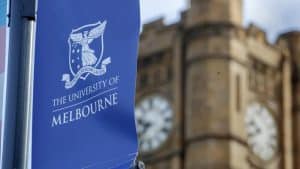PNN – In line with immigration reduction policies, the Australian government has limited the process of accepting international students; Australian universities have warned of massive job losses if the law is quickly implemented.
According to the report of Pakistan News Network, Australian universities have warned that if the government of this country quickly implements the law limiting the admission of international students, there will be extensive job losses in this country. One of the industry bodies has called this proposed policy “unprecedented and an excessive action” by the government.
The Australian government is currently consulting on a plan to limit the number of international students domestic universities can accept.
The policy aims to address community concerns about high immigration rates following the Covid-19 pandemic, which is exacerbating housing shortages and has also led to some criticism of the quality of services provided by Australia’s tertiary institutions.
In a Senate hearing on the new laws, Luke Sheehy, the chief executive of Universities Australia, said: This policy could lead to the loss of 14,000 jobs in various sectors and damage the country’s economy by $4.3 billion.
In a statement to the Legislation Review Committee in Canberra, Mr. Sheehy said: This sector (attracting foreign students) is our second largest revenue generator after mining and is worth approximately 50 billion Australian dollars to the economy and supports approximately 250,000 jobs.

Increasing student admission fees in the first step
The Australian government initially announced plans to cap international student numbers in the 2024 federal budget, following months of efforts by then Home Affairs Minister Claire O’Neill to crack down on short-term and student visa fraud.
In July, Australia announced that it would increase visa application fees for international students by 125%, bringing the total cost to AUD$1,600 per application.
Andrew Norton, a higher education expert at the Australian National University (ANU), said in a new report published in August that the government would be better off waiting and seeing the effects of policy reforms already implemented before cracking down further on international students.
In an article published in the Australian Migration Centre, which provides analysis of migration research and policy, Norton wrote: The Australian government, on its current course, will do far more damage than it needs to in order to achieve its political goals. The country’s mistreatment of people hoping to study in Australia damages the country’s reputation.
Some experts say that changing policies in popular countries will lead students to alternative options.
Australia’s education minister has rejected a government report that international students should account for 40 percent of university enrollments, saying such a restrictive cap could push Australia into recession.
Jason Keller said Labor did not intend to have such a cap and would help protect the “social licence” of the international education sector and not damage an “incredibly important national asset”.
However, last month Australia’s ruling Labor Party more than doubled the non-refundable application fee for international students to reduce net immigration from 528,000 in 2022-23 to 260,000 by 2024-25.
The government has not yet finalized the proposed cap, but some in the government are concerned that the reduction in the workforce, which will result from the reduction in student enrollment, should not come at the expense of economic growth. They have retreated from creating a ceiling and limiting the admission of students.
The final details of this policy have not yet been confirmed and the parliamentary inquiry into the proposed law will be reported by August 15. It is expected that the new student admission ceiling will be effective from January 1, 2025.
With universities expecting to know within days what the proposed cap will be, the Australian Economic Survey reported last Tuesday that the cap could be limited to 40% of total enrolments.
A rebound in international student numbers in 2019 will cost the Australian economy $11.6 billion in 2025, or about 0.5 percent of GDP, according to a Sydney Morning Herald report by economist and university professor Richard Holden.
This could easily be enough to push Australia into a real recession, he warns.

